There is no end in sight to Wilayat Sinai’s guerrilla campaign against the Egyptian Army and other foes, despite the launch of multiple counter-insurgency operations by the Army since 2013. The Islamic State’s so-called Sinai “province” has also remained loyal to the group’s overall leadership, even with the death of Abu Bakr al-Baghdadi and several of his key lieutenants.
The jihadists’ attacks against army posts and check points continue to be successful against an army that benefits from air-support, APCs, tanks and superior armament.
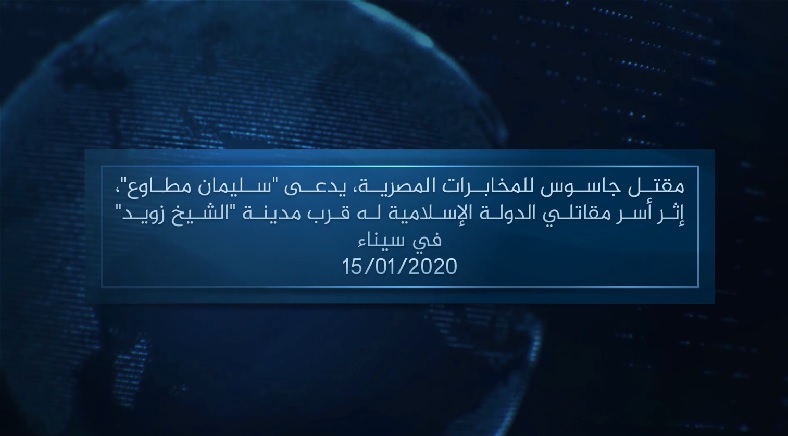
On January 15th, the ISIS’s Amaq News Agency posted a message on one of its affiliated Telegram channels.
“An Egyptian intelligence spy, called “Suleiman Mutawe,” was killed after Islamic State fighters captured him near the city of “Sheikh Zuweid” in the Sinai.”
The video accompanied the message that was posted about the execution. In the video, Mutawe, makes a statement about being an informant for the Egyptian Army.
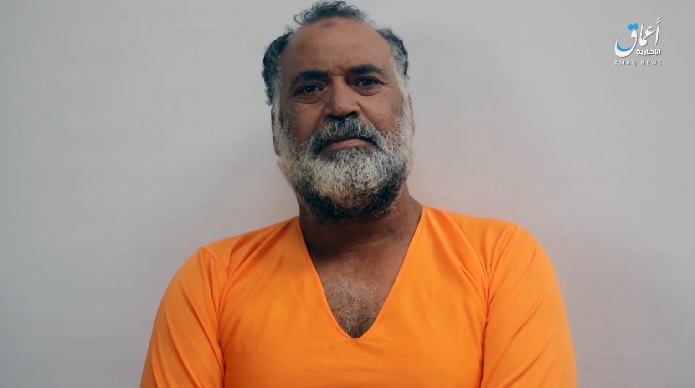
“I am Suleiman Hamed Mahammed Mutawe, age 48 years. Major Hosam, the [Egyptian] Border Intelligence Bureau officer, assigned us to maintain the area we work in and inform him of anything we see. I reported several explosive devices, smuggling operations and some coordinates.”
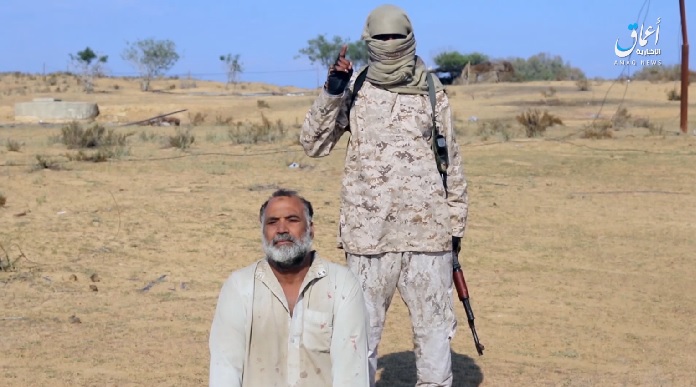
After his statement, the scene changes to an ISIS gunman standing behind Mutawe. After a brief statement, the gunman executes him.
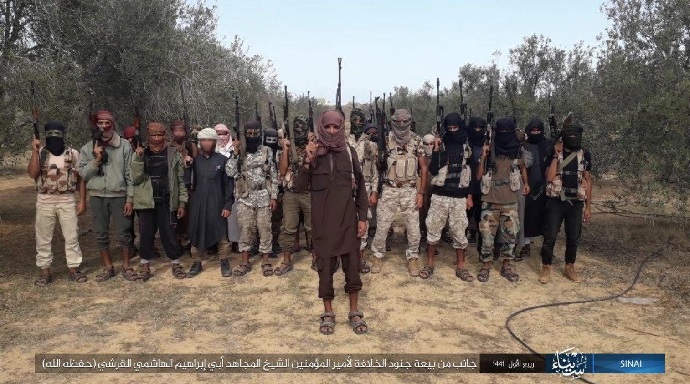
Due to the death of ISIS’s leader, Abu Bakr al-Baghdadi, during an American Special Forces raid in the Idlib Governorate, the Islamic State in the Sinai pledged allegiance to the new leader of ISIS, Abu Ibrahim al-Hashimi al-Qurayshi.
Since the death of their former leader, hit-and-run attacks have continued throughout the areas of the northern Sinai. Amaq News Agency has posted dozens of statements including videos of attacks and extrajudicial killings of alleged Egyptian Army collaborators on their affiliated Telegram channels.
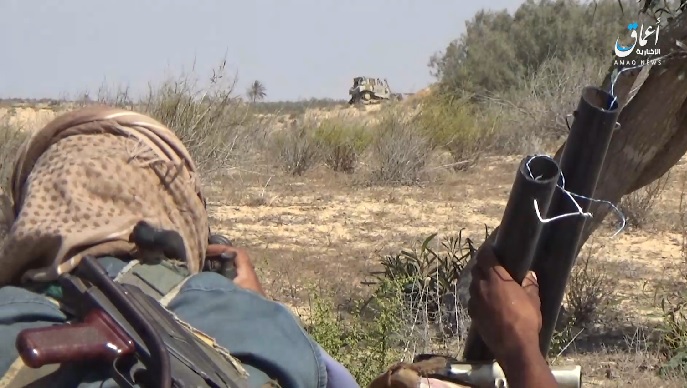
In a video posted in October 2019, several scenes show different attacks by ISIS gunmen against Egyptian Army bulldozers west of Sheikh Zuweid.
ISIS claims Israel’s Air Force bombed their position in 2018
Egypt has had a difficult time containing the insurgency occurring in the north of the country. The terrain in this part of the country offers excellent cover for hit-and-run attacks against Egyptian Army outposts which are located too far and between one another.
Israel has long been suspected of assisting the Egyptian Army in combating ISIS near the southern Israeli border. According to a 2018 New York Times report, “For more than two years, unmarked Israeli drones, helicopters and jets have carried out a covert air campaign, conducting more than 100 airstrikes inside Egypt, frequently more than once a week — and all with the approval of President Abdel Fattah el-Sisi.”
Even with the military assistance of Israel, Egypt has not been able to control the insurgency in the northern part of the country. Egypt’s President el-Sisi and the Army will have to rethink their counterinsurgency strategy against the threat in the north. Until a viable strategy is produced, ISIS will continue to flourish and succeed in its tactics and strategy to defeat the Egyptian Army.
